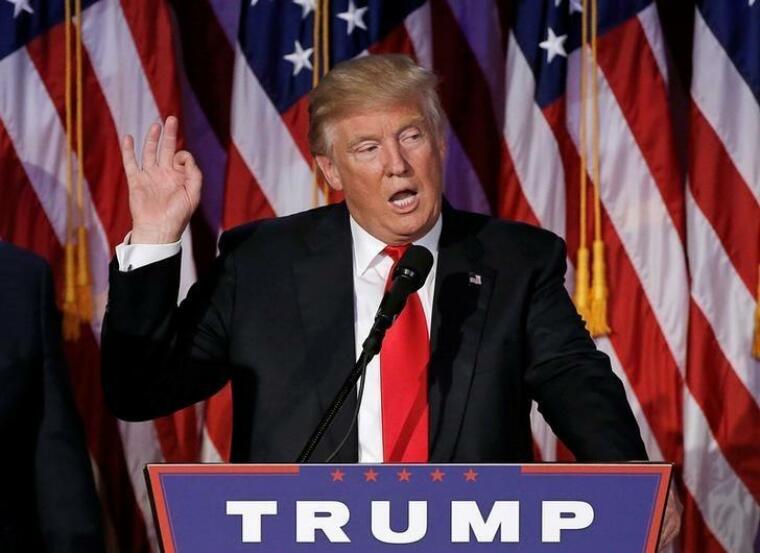US bishops call for humane treatment of immigrants under Trump administration

The U.S. Conference of Catholic Bishops has reiterated its pledge to serve people who are fleeing from violence and urged President-elect Donald Trump to adopt policies that will treat immigrants and refugees humanely.
"We stand ready to work with a new administration to continue to ensure that refugees are humanely welcomed without sacrificing our security or our core values as Americans. A duty to welcome and protect newcomers, particularly refugees, is an integral part of our mission to help our neighbors in need," the bishops stated in a recent meeting, as reported by Catholic Herald.
During his campaign, Trump had expressed his intention to build a wall and deport 11 million people who are in the U.S. illegally. The president-elect has since softened his stance but in his interview with Leslie Stahl on "60 Minutes," he said that he would deport up to three million undocumented immigrants with criminal records.
Archbishop Joseph Kurtz stated in a speech at the Baltimore assembly that protecting refugees is still a priority for the Church. He noted that bishops may also find common ground with Trump regarding religious liberty and the appointment of pro-life justices to the Supreme Court.
Their concern lies with Trump's rhetoric during the campaign, in which the president-elect referred to Mexican immigrants as rapists and criminals as well as his proposal to ban Muslims from entering U.S. soil.
Los Angeles Archbishop Jose Gomez recently held a prayer service to calm his mostly Latino parishioners who are afraid of facing deportation.
"They don't know what to make of it, especially many of them who have been here for a long time and they have families," said Gomez.
Miami Archbishop Thomas Wenski reassured local Catholics by pointing out that when Ronald Reagan was first elected, the Haitian community faced the same fears. Reagan signed an immigration reform to strengthen border security but he also allowed some immigrants who entered the U.S. illegally to stay in the country.
"It's time to take a deep breath and continue our advocacy. If they're going to build a wall, we're going to have to be sure they put some doors in that wall," said Wenski.
 Christians don't have to affirm transgenderism, but they can’t express that view at work: tribunal
Christians don't have to affirm transgenderism, but they can’t express that view at work: tribunal Archaeology discovery: Medieval Christian prayer beads found on Holy Island
Archaeology discovery: Medieval Christian prayer beads found on Holy Island Presbyterian Church in America votes to leave National Association of Evangelicals
Presbyterian Church in America votes to leave National Association of Evangelicals Over 50 killed in 'vile and satanic' attack at Nigerian church on Pentecost Sunday
Over 50 killed in 'vile and satanic' attack at Nigerian church on Pentecost Sunday Ukrainian Orthodox Church severs ties with Moscow over Patriarch Kirill's support for Putin's war
Ukrainian Orthodox Church severs ties with Moscow over Patriarch Kirill's support for Putin's war Islamic State kills 20 Nigerian Christians as revenge for US airstrike
Islamic State kills 20 Nigerian Christians as revenge for US airstrike Man who served 33 years in prison for murder leads inmates to Christ
Man who served 33 years in prison for murder leads inmates to Christ


 Nigerian student beaten to death, body burned over ‘blasphemous’ WhatsApp message
Nigerian student beaten to death, body burned over ‘blasphemous’ WhatsApp message 'A new low': World reacts after Hong Kong arrests 90-year-old Cardinal Joseph Zen
'A new low': World reacts after Hong Kong arrests 90-year-old Cardinal Joseph Zen Iran sentences Christian man to 10 years in prison for hosting house church worship gathering
Iran sentences Christian man to 10 years in prison for hosting house church worship gathering French Guyana: Pastor shot dead, church set on fire after meeting delegation of Evangelicals
French Guyana: Pastor shot dead, church set on fire after meeting delegation of Evangelicals ‘Talking Jesus’ report finds only 6% of UK adults identify as practicing Christians
‘Talking Jesus’ report finds only 6% of UK adults identify as practicing Christians Mission Eurasia ministry center blown up in Ukraine, hundreds of Bibles destroyed: 'God will provide'
Mission Eurasia ministry center blown up in Ukraine, hundreds of Bibles destroyed: 'God will provide' Church holds service for first time after ISIS desecrated it 8 years ago
Church holds service for first time after ISIS desecrated it 8 years ago Burger King apologizes for 'offensive campaign' using Jesus' words at the Last Supper
Burger King apologizes for 'offensive campaign' using Jesus' words at the Last Supper Uganda: Muslims abduct teacher, burn him inside mosque for praying in Christ’s name
Uganda: Muslims abduct teacher, burn him inside mosque for praying in Christ’s name